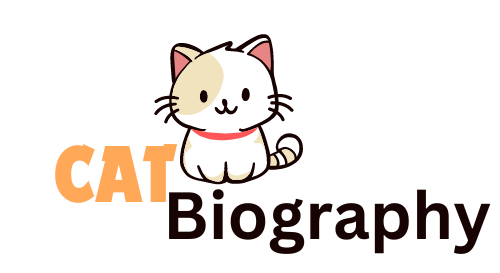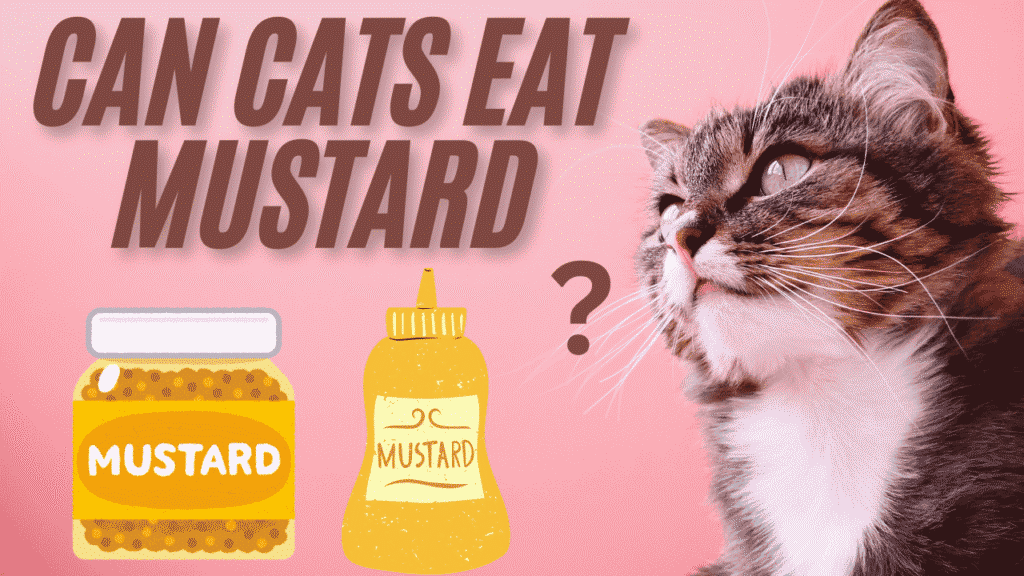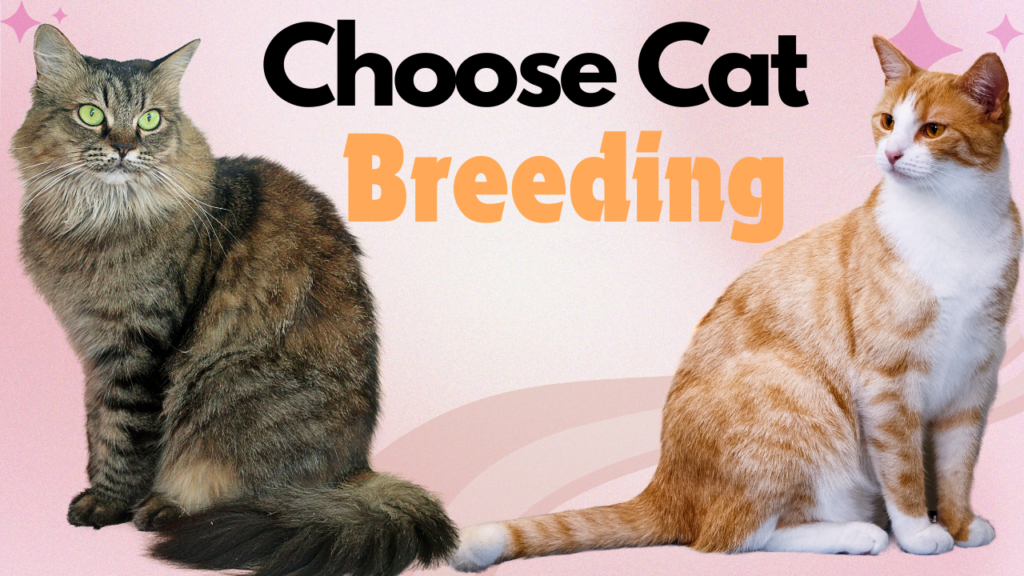Cats are curious creatures, and their dietary habits can often lead them to sniff out and sample foods they shouldn’t. As responsible pet owners, it’s essential to ensure that our feline friends consume only what is safe for them. One common question pet owners ask is, “Can cats eat mustard?”This article offers a detailed analysis of the topic, providing clear insights to help you make informed choices about your cat’s well-being.
What is Mustard Made Of?
To understand whether mustard is safe for cats, we first need to examine its ingredients. Mustard is typically made from:
- Mustard Seeds: These seeds are the primary ingredient. They contain compounds such as isothiocyanates, which can be harmful to cats.
- Vinegar: A common preservative and flavoring agent, vinegar is not inherently toxic but can upset a cat’s stomach.
- Salt: Excessive salt intake is harmful to cats, leading to dehydration and potential kidney issues.
- Spices and Additives: Many types of mustard contain spices and preservatives that are unsuitable for cats.
These ingredients make mustard a potentially harmful food for your feline friend.
Why Mustard is Unsafe for Cats
1. Presence of Isothiocyanates
Mustard seeds contain isothiocyanates, compounds known for their pungent flavor.While these may improve flavor for humans, they are harmful to cats. Consuming them can cause gastrointestinal issues such as vomiting, diarrhea, and abdominal discomfort.
2. High Sodium Content
Many mustard varieties are loaded with salt.Cats have a significantly lower tolerance for sodium compared to humans.Consuming salty foods like mustard can cause:
- Dehydration
- Elevated blood pressure
- Salt poisoning, which can manifest as seizures, lethargy, or even coma in severe cases.
3. Vinegar and Other Acids
While vinegar is not directly toxic, its acidic nature can irritate a cat’s digestive system, causing discomfort and potential vomiting.
4. Additives and Spices
Mustard often contains additives, such as turmeric, paprika, or garlic powder, which are toxic to cats. Garlic, specifically, can harm red blood cells and cause anemia.
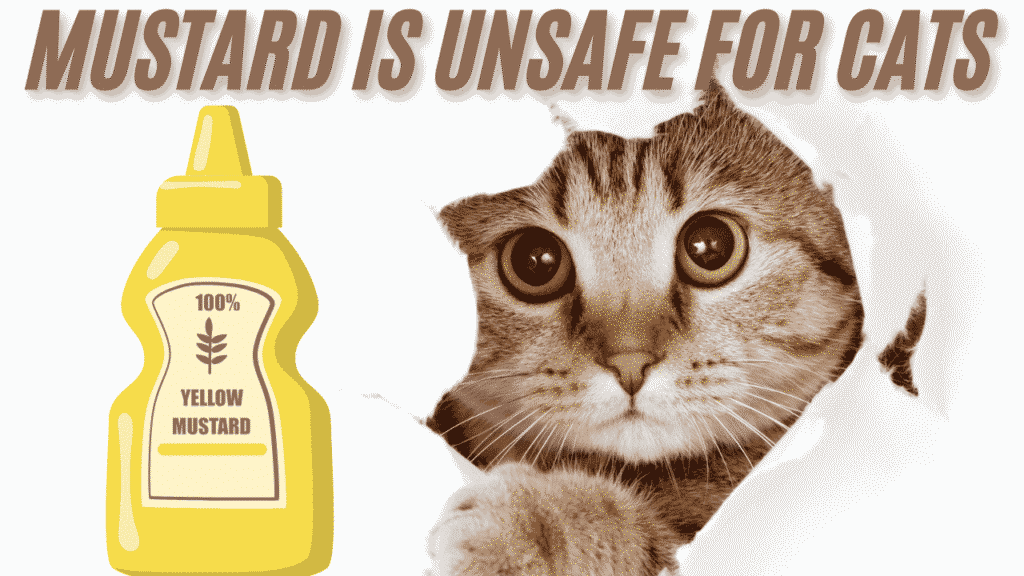
What Happens If a Cat Eats Mustard?
If your cat accidentally consumes a small amount of mustard, the effects may vary depending on the quantity and the specific ingredients. Common symptoms include:
- Vomiting
- Diarrhea
- Drooling
- Lethargy
- Loss of appetite
In severe cases, where a large amount of mustard has been ingested, symptoms may escalate to include:
- Difficulty breathing
- Elevated heart rate
- Weakness or collapse
If your cat shows any of these symptoms, reach out to your veterinarian right away.
How to Respond if Your Cat Eats Mustard
Step 1: Assess the Situation
Determine how much mustard your cat has consumed. If it was just a lick, the risk of severe consequences is low, but monitoring your cat for any signs of distress is crucial.
Step 2: Remove Access
Ensure that the mustard or any other unsafe food is out of your cat’s reach to prevent further ingestion.
Step 3: Contact Your Veterinarian
If your cat has consumed a significant amount of mustard or is displaying symptoms such as vomiting or lethargy, seek veterinary advice immediately. Provide the vet with information about the amount and type of mustard consumed.
Step 4: Avoid Home Remedies
Do not attempt to induce vomiting or administer over-the-counter treatments unless specifically directed by a veterinarian. Incorrect interventions can worsen your cat’s condition.
Safe Alternatives for Cats
If your cat seems interested in condiments or human food, try providing safe, cat-friendly alternatives instead.
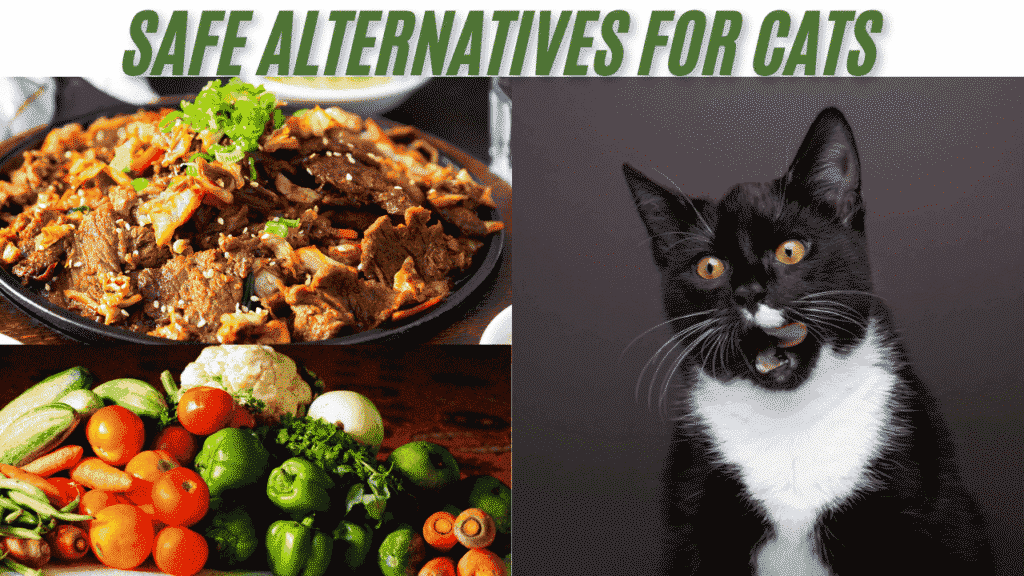
- Cooked Meat: Simple, unseasoned chicken or turkey makes a healthy and nutritious treat.
- Cat-Specific Treats: Designed to meet feline nutritional needs, these are a safer choice.
- Vegetables: Small amounts of cooked carrots or peas can be a healthy snack.
Always introduce new foods in moderation and consult your vet if you’re unsure about their safety.
Preventing Accidental Ingestion
Store Food Safely
Keep condiments like mustard securely stored in cabinets or the refrigerator, away from your cat’s reach.
Be Mindful During Meals
Cats are naturally curious and may try to sample your food. Avoid leaving plates unattended and discourage begging behaviors.
Educate Household Members
Ensure everyone in your household understands which foods are unsafe for cats and the importance of not feeding them table scraps.
Conclusion
In conclusion, cats should not eat mustard. Its ingredients, particularly mustard seeds and added spices, pose risks to your cat’s health. While a tiny lick might not cause severe harm, it’s best to err on the side of caution and keep mustard out of your cat’s diet. By understanding the risks and taking preventive measures, you can ensure your feline friend remains healthy and safe.
# : if you want to more information of this topic to click here see more
# : READ ANOTHER POSTS
1 : Can Cats Have Mayo? Everything You Need to Know
2 : Can Cats Eat Mushrooms? Everything You Need to Know
3 : Can Cats Eat Turkey? A Comprehensive Guide for Pet Owners
4 : How to Measure Your Cat’s Heart Rate While Purring: A Comprehensive Guide
